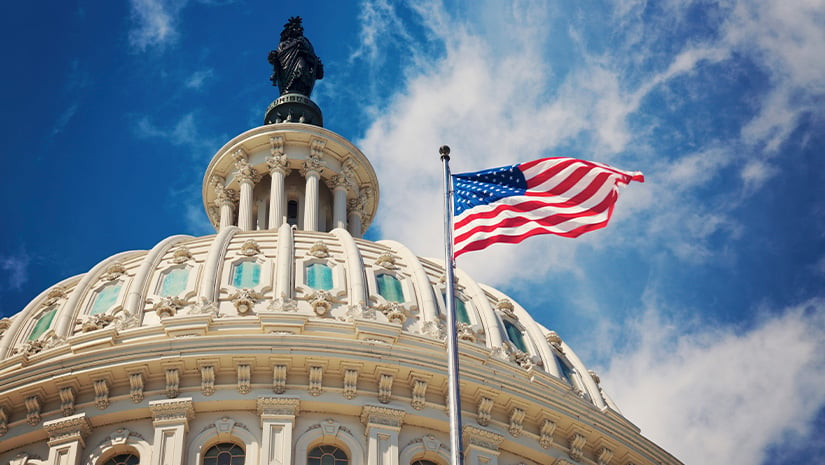
Key insights
- New tax legislation proposes to enhance benefits for taxpayers, fix challenges with past legislation, and create new programs.
- How and when the proposed legislation could become law remains unclear.
- Taxpayers impacted by the retroactive provisions should consider extending income tax returns.
Background
On January 16, Senate Finance Committee Chair Ron Wyden (D-Ore.) and House Ways and Means Chair Jason Smith (R-Mo.) released details of a $79 billion tax relief plan titled “The Tax Relief for American Families and Workers Act of 2024 (H.R. 7024) (AFWA).”
The tax breaks under the plan are almost entirely paid for by early termination of employee retention credit claims. The staff of the Joint Committee on Taxation provides the estimated revenue effects.
Since its release, the House passed AFWA on January 31 in a bipartisan vote of 357 to 70, and the bill now heads to the Senate.
Plan for the impact of AFWA on your organization.
What is included in the proposal?
The tax proposals in AFWA include:
- Child tax credit — Raise the maximum refundable child tax credit from $1,600 per child to $1,800 in 2023, $1,900 in 2024, and $2,000 in 2025. Inflation may impact further adjustments during these years. Other modifications to the calculation of the additional child tax credit are included that may increase the credit amount under current law.
- Research and experimental expenditures — Retroactively restore current deductions for domestic research and experimental expenditures under Section 174 paid or incurred in tax years beginning after December 31, 2021 and before January 1, 2026. Taxpayers transitioning to current deductibility for 2022 domestic expenditures would be able to file an automatic accounting method change and spread the deduction over a two-year period. Foreign research expenditures would still be subject to 15-year amortization.
- Business interest expense — Increase the deductibility of business interest by reinstating the depreciation and amortization addback to adjusted taxable income for purposes of computing the Section 163(j) business interest expense limitation. This would apply for tax years beginning after December 31, 2023 and before January 1, 2026. However, taxpayers may elect to use the EBITDA approach for tax years beginning after December 31, 2021.
- Depreciation:
- Extend 100% bonus depreciation for qualified property placed in service after December 31, 2022 and before January 1, 2026.
- Increase the Section 179 expensing amount from $1 million to $1.29 million for qualified property placed in service in tax years beginning after December 31, 2023.
- Taiwan residents — Enact the U.S. – Taiwan Expedited Double-Tax Relief Act, providing reduced federal income tax rates on certain types of U.S. source income earned by qualified residents of Taiwan.
- Personal casualty losses — Waive the 10% adjusted gross income limitation and $500 per casualty thresholds and allow for “above the line” deductions of certain disaster-related personal casualty losses. Moreover, the bill would provide for gross income exclusions for “qualified wildfire relief payments” and East Palestine Disaster Relief Payments. Relief effective dates vary.
- Low-income housing credit — Restore the 12.5% low-income housing credit ceiling for calendar years 2023, 2024, and 2025.
- Employee retention tax credit (ERTC) — Bar any COVID-related ERTC claims made after January 31, 2024. This provision was included to help pay for the tax breaks discussed above.
Will the bill pass in the Senate and, if so, when?
The short answer: the timeline for and likelihood of the Senate passing this tax bill is still unclear.
Politically, the proposed tax bill faces potential roadblocks that could delay a floor vote in the Senate. Some senators have expressed an interest in AFWA undergoing a markup session in the Senate Finance Committee. This could lead to amendments such as further expansion of the child tax credit and increases to the state and local tax (SALT) deduction cap, which could prove difficult to pass in the House. Moreover, competing legislative priorities involving supplemental military funding for the conflict in Ukraine and U.S. – Mexico border security funding could draw attention away from passing AFWA.
Procedurally, if the legislation is fast-tracked as a standalone bill, then passage likely would require 60 votes in the Senate and conceivably could pass in February. However, time is of the essence as the Senate is in recess for two weeks starting on February 10. Alternatively, if the tax bill is attached to one of the twelve FY24 appropriations bills, then passage would require a simple majority in the Senate. If this latter approach is taken, there’s a good chance these appropriations bills will not be voted on until March, now that Congress is working under a recently passed two-month continuing resolution.
Notwithstanding the politics and procedures, it appears crucial for Congress to reach an agreement on the proposed tax bill in the February – March legislative period before election season heats up and the summer recess begins.
Practical considerations — what this means for taxpayers
Many of the AFWA provisions mentioned above are retroactive to 2023 or earlier years. Even if the proposed bill is passed before the April 15 deadline for filing 2023 income tax returns, it may take the IRS several weeks or months to develop procedural guidance implementing the new law.
Taxpayers who may be affected by AFWA should consider extending their 2023 income tax returns. This will give taxpayers and their tax return preparers the opportunity to see if AFWA passes and, if it does, additional time to digest its contents, the opportunity to make certain favorable elections, and take steps towards proper tax reporting.
How we can help
If you would like to learn more about this proposed tax legislation, please contact your local CLA office to schedule a consultation. Check back with us for updates on AFWA and other important tax topics.
Once new legislation passes and becomes law, our tax consultants can help you plan for the impact on your organization.
Contact us
If you are unable to see the form below, please complete your submission here.
